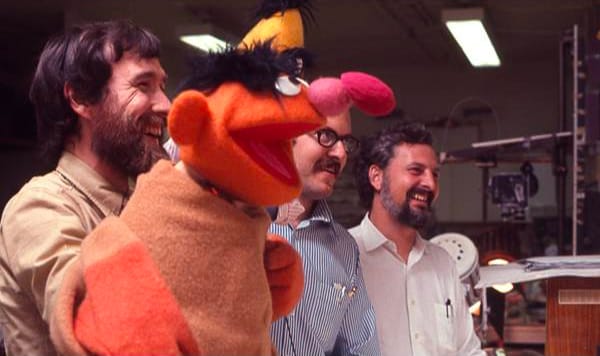Deep into HBO's thoroughly engaging documentary* Street Gang: How We Got To Sesame Street*, longtime Sesame Street producer and songwriter Christopher Cerf sits down at a piano to play a whimsical little Beatles pastiche. As he sings "Letter B," a song barely shifted musically from "Let It Be," director Marilyn Agrelo cuts between him and the 1981 Sesame Street segment where mop-haired, antenna-sporting Muppets perform the song, backed by a drum kit that gives their band name as "The Beetles." The segment wraps, and Cerf chuckles a bit and casually adds, "That was a $5 million lawsuit." And then the documentary moves on.
The story of the "Letter B" lawsuit is fascinating enough to warrant a deep dive: The company that owned the rights to "Let It Be" filed the copyright claim out of a fear that letting "Letter B" go past unremarked would encourage advertisers to use similarly thinly veiled Beatles songs for ads. A successful suit would have bankrupted Sesame Street's producer, Children's Television Workshop, but it was eventually dropped when Michael Jackson intervened. Agrelo doesn't get into any of that: She doesn't take time to explore Cerf's comment, even in the briefest way. To the degree that *Street Gang *has a flaw, it's in the way it's constantly throwing out teases like that, and then skimming along to the next thing. There's a real sense that instead of a film, this could have been a miniseries. There's so much to dig into around Sesame Street's earliest days, and Street Gang barely scratches the surface. At times, it feels more like an invitation to further research than anything else.
But the film is a compelling invitation. Working from Michael Davis' 2009 book Street Gang: The Complete History of Sesame Street, Agrelo tells the behind-the-scenes story of how Sesame Street came together in the 1960s. And many of the details of that story will surprise people who aren't already deeply into Muppet lore.
Viewers will know from the opening shot whether they're the intended audience for this project. Anyone who gets at least a small thrill from hearing the original Sesame Street theme song, or seeing the Sesame Street building layout from a fresh new perspective, looking down through the studio lights, should settle in for the ride. Everyone else might just as well move on. Over the film's brisk 107-minute runtime, Agrelo interviews some of the people behind the show's early development, from the 1966 Carnegie Corporation study on children's TV use to the hiccups in having a woman, Joan Ganz Cooney, as the project's head in an era when women were rarely tapped for producer-level programming jobs. As Cooney and others explain, they felt TV could be used as an educational tool for young children in an era where most kids' programming was designed to sell merchandise. Convincing companies and designing a curriculum for the show was an uphill road.
*Street Gang *had the potential to be a dry story about lesson plans and case studies, but from the very start, the footage of wide-eyed children reacting to Sesame Street's engaging early human cast is compelling. It's one thing to have read in the past that *Sesame Street *was heavily designed to give poorer inner-city kids the educational boost that would let them start school on the same level as their white suburban peers. It's another thing entirely to see how *Street Gang *was integrated from the start, in a TV environment that wouldn't take up "diversity" as a watchword for another five decades. (One particularly engaging sub-thread in the film is the excuses a few Southern TV channels made to ban *Sesame Street *for its progressive values around race, and the backlash when they did.)
Throughout the entire film, the personalities are engaging, outsized, and even daffy, even as they're talking seriously about corporate battles and educational initiatives. "It was chaos," says Joe Raposo, the songwriter behind *Sesame Street *staples like "C Is For Cookie" and "(It's Not Easy) Bein' Green," "but it was the chaos of people dedicated to a real ideal, believing something could be done, and having the will to do it. And it was the most exciting period of our lives."
Raposo himself seems like a fascinating figure who could warrant his own complete documentary, along the line of Disney's Howard Ashman profile, Howard. His explanation of how he came to write "Bein' Green" (seen in archival footage; Raposo died in 1989) is sweet and illuminating, and as with so much in Street Gang, it suggests that there's a story behind every song and moment. Agrelo at least uses her time well --- while some of the run time certainly is devoted to the usual airy praise for the show and its personnel, and the experience of working on it, she packs in a huge amount of surprising information to go with the good feelings.
One of the better revelations: While people who grew up with *Sesame Street *probably associate it very strongly with Jim Henson and the Muppets, Henson was a comparatively late addition to a show well underway, and at the beginning, at least some of the serious-minded TV producers and educators who were designing this show were nonplussed by what Cooney describes as an obvious hippie in their midst, "bearded, with long hair and leather clothes." The early plans for the show would have segregated the Muppets into their own segments, where they would never interact with human characters. That only changed when the producers saw kids watching test footage, and found the humans "couldn't compete" with the Muppets for focusing attention and interest.
Agrelo's access throughout the film is impressive: For thoughts on Henson, she turns to his children Lisa and Brian, and for perspectives on the show's growth, she talks to various members of the early human cast, like Bob McGrath and Emilio Delgado. She includes a treasure trove of behind-the-scenes footage, from a young Caroll Spinney walking around in only half of his Big Bird costume to the many scenes of Muppeteers just below the show's visible surface. Throughout the film's run, there's a sense almost of being there as it happens, as a cultural icon starts with the best intentions, then slowly finds its voice. Street Gang certainly doesn't tell the whole story of Sesame Street's early years --- it can't begin to. But it's an absorbing, nostalgia-courting start, and for people with fond memories of the show, it's an unbeatable chance to approach it as an adult, and understand their own childhoods a little better in the process.












